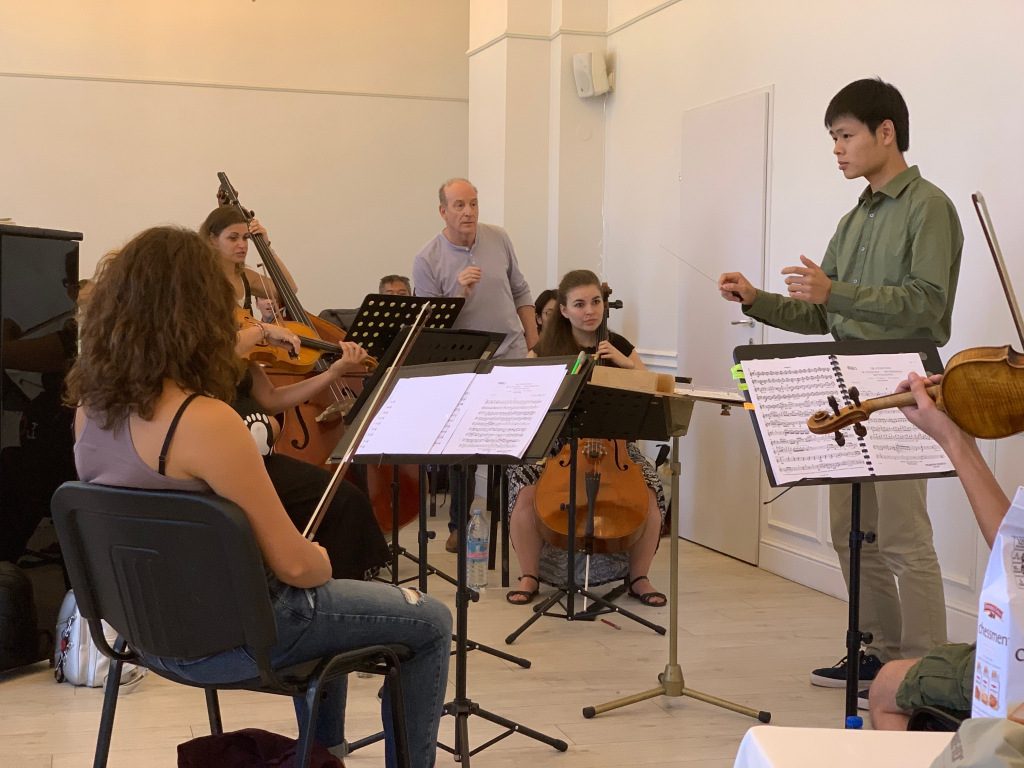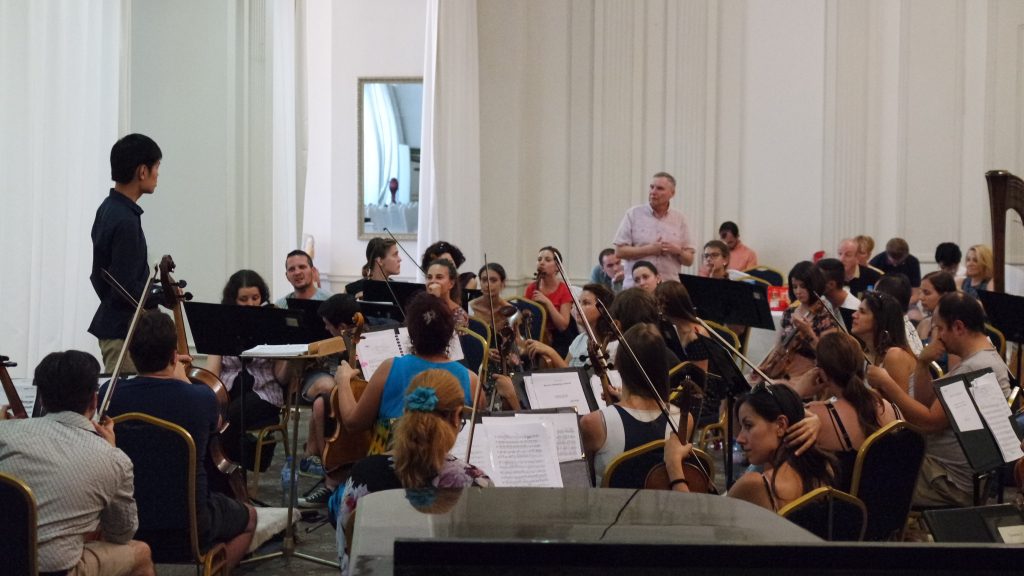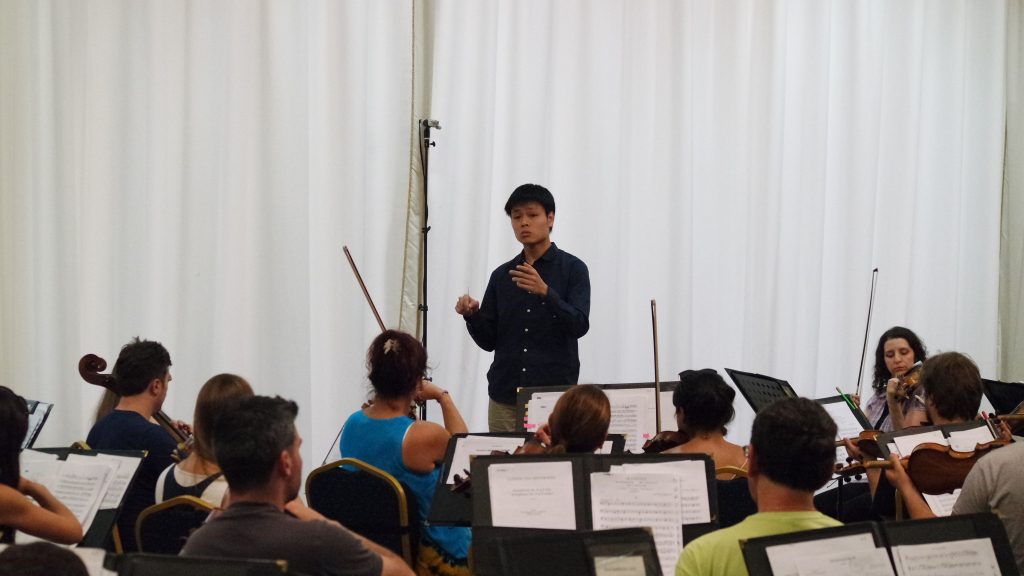What ICWF 2019 Brings to My Conducting
September 10, 2019
“You’ll upgrade their ear concentration by looking like this is critical for the world.” (Larry Rachleff)
The questions like what conductors do or why they need to be there do not have a single clear answer. Every person’s experience in conducting is different, and they have their idea of what we do as a conductor; hence the technique they teach varies from each other. However, it is possible to find out a minimum contribution of conductors to music by thinking back to the beginning; what music is.
This workshop structured in a way that all the conductors can learn a lot from watching other conductors conducting and being coached. You will conduct 10 minutes with either sextet (five string players and a piano who covers all the wind and the brass) or full orchestra. While you conduct, two teachers collaborate for their coaching: they would stop, explain what was good and needs to be fixed, and demonstrate how to do it occasionally. Since there were more than 30 other conductors, the majority of the time were observation time.
 Conducting a sextet session while being coached by Larry Rachleff
Conducting a sextet session while being coached by Larry Rachleff
I was nervous and quite uncomfortable when I went up to conduct in front of two teachers who kept stopping to give me many critiques and other 34 conducting colleague and 60-80 musicians who witnessed it. Interestingly, I was able to learn more when I was off the podium and listening and observing what two maestri were working on with other conductors.
As I kept taking my note of what two masters say and how the orchestra reacts to all other conductors, I realized the most basic, but the most crucial fact of music; music is audible arts. The ideal performance moment is when all the players are listening to each other, and everything will match, such as intonation, articulation, rhythm, character, and ensemble. When Donald Schleicher said “Just standstill. It’s no fun to not move, but boy is it effective” I could not figure out what it means. However, when I did as he told, suddenly the music became together and beautiful.
 Being coached by Donald Schleicher “Standstill”
Being coached by Donald Schleicher “Standstill”
This realization made me reconsider about the ideal leadership figure. Rather than commanding, giving the orders, or making something happen by giving a big gesture to interrupt playing, it is more important and efficient for leaders to have a presence where people feel comfortable to collaborate for the organization’s goal. As conductors can be the most powerful when they create their “being” by conveying authenticity and venerability to music, true leaders might be the one who can be what other people need to be for the teamwork.
 Conducting a full orchestra session with New Symphony Orchestra
Conducting a full orchestra session with New Symphony Orchestra
